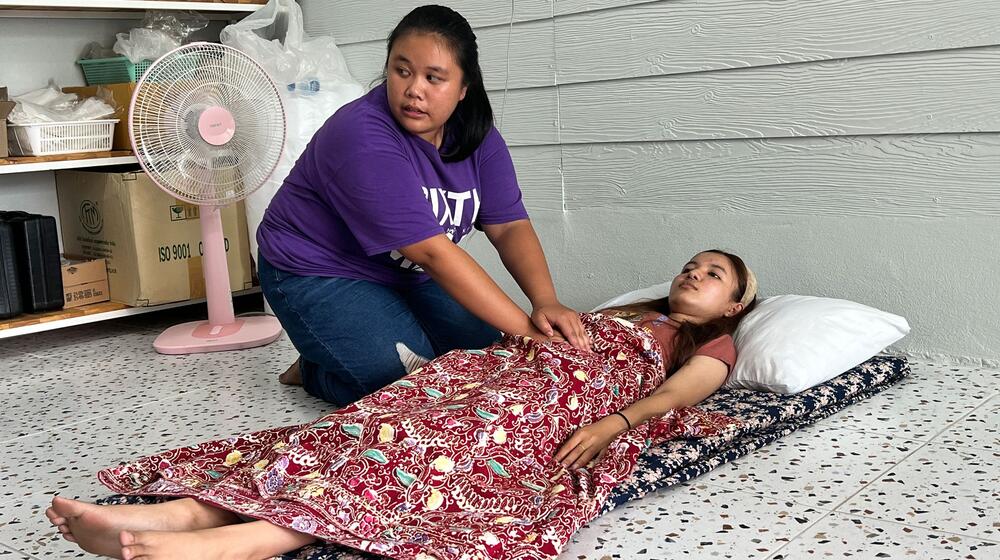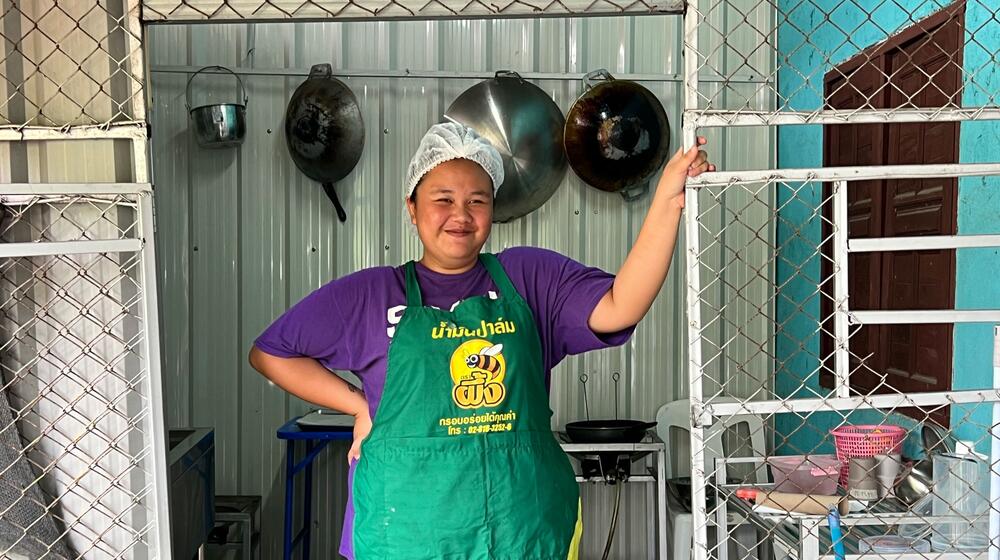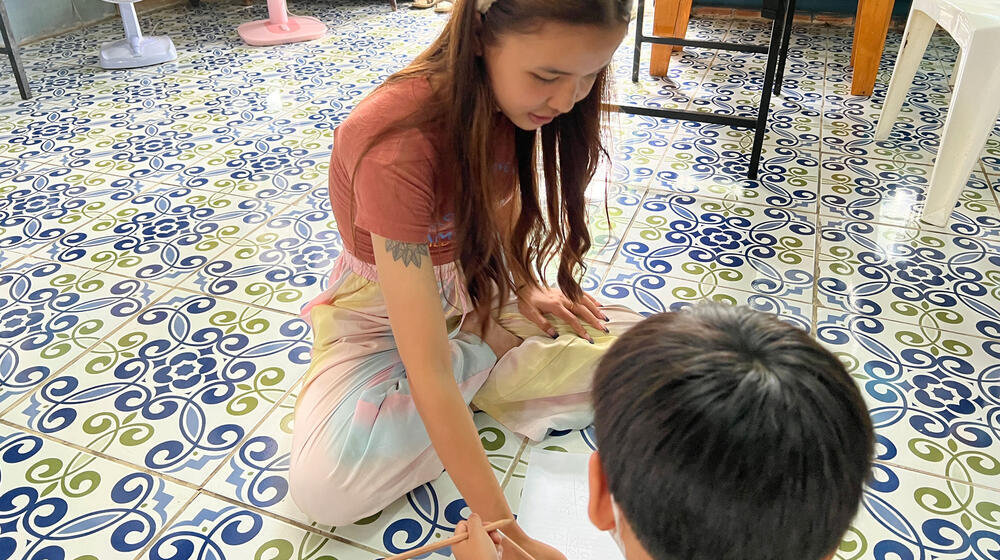CHIANG MAI, Thailand – Nan*, 19, gave a soothing and warming massage to Aorn*, 21, on the floor of Khon Wai Sai, a local organization near Chiang Mai, in northern Thailand. Nan was practising a traditional abdominal massage often performed on new mothers – a service she offers to postpartum women for a modest fee, and which she gives to teen mothers for free, to help them feel supported and accepted.
Nan and Aorn both know the challenges of becoming a mother in adolescence, and the stigma and discrimination that can come with it. They are among the estimated 47,400 adolescents between the ages of 15 and 19 who become pregnant each year in Thailand.
“At my school, they didn’t talk about sexual activity,” said Nan, who gave birth to her daughter at age 16. “Teachers told us that we were too young to know about reproductive health. And when I went to the health centre to get a condom, they said the same. People just wanted to gossip about me.”

Fear and stigma
The taboos around providing sexual and reproductive health information also contributed to Aorn’s pregnancy at age 14. Though she had been aware of contraception, she did not know how to negotiate condom use with her boyfriend or how to seek support from non-judgmental adults.
Pregnancy was a fraught time for Aorn. Her mother disagreed with her decision to continue the pregnancy, fearing Aorn’s education would be disrupted and her future marred by widespread prejudices against young unmarried mothers.
Her mother persuaded Aorn to take a herbal drink used locally to help induce abortions, but it did not work. Her son, One*, was later born without complications. “I was so relieved when he was born healthy, and I have no regrets,” Aorn said. “I’m so happy to have him in my life.”
Her mother had been right about Aorn’s education, though. Both Aorn and Nan left school, a consequence experienced by many Thai girls who find themselves pregnant as teens.
Attitudes slow to change
Thailand has made significant strides in recent years to address the barriers facing young people like Aorn and Nan when it comes to accessing family planning and sexual and reproductive health information.
The universal health coverage system, for instance, provides family planning services and access to a range of birth control options, including contraceptive pills, long-acting contraception implants, and up to 10 free condoms a week to every young person. Legislation introduced in 2016 has strengthened youth-friendly services and ultimately reduced adolescent pregnancy. Five years after the law’s implementation, the pregnancy rate of 15- to 19-year-olds has fallen by half.
Attitudes have been slower to change, however. Discrimination and stigma – including by teachers and health providers – continue to prevent young people from accessing information and care, said Asa Torkelsson, the country director for UNFPA, the United Nations sexual and reproductive health agency, in Thailand.
Gender inequality, poverty, sexual violence and coercion, as well as exclusion from education and job opportunities – which can leave girls dependent on partners and unable to negotiate for safe sex – also play a role, she noted.
UNFPA is working with the Government and partners like Khon Wai Sai to promote “a more holistic approach to support girls’ rights and to empower them to avoid adolescent pregnancy,” Dr. Torkelsson said.
Embracing traditions while changing minds
Khon Wai Sai is one such partner. The organization provides services, guidance and small financial grants to young mothers through a programme supported by UNFPA and the company Reckitt.
Aorn received a grant to open her own coffee shop, which is helping to support her family. She has also received training to become a peer educator, and now volunteers at Khon Wai Sai to help other young women receive the services and information that she wasn’t able to.
“I tell young women, especially those from the countryside who do not have access to information about their options, for example birth control,” she said. “Many don’t have that information.”
Nan, too, received support from Khon Wai Sai. She runs several small enterprises, including a composting and worm farming business. She now works at Khon Wai Sai as a staff member.

And she engages in a number of traditional cultural activities, not only giving massages to postpartum women but also cooking and selling Dok Jok, a local bread fried into the shape of a flower, “which is mainly popular with older people,” she said.
In these ways, she demonstrates that gender equality, comprehensive sexuality education and youth-friendly sexual and reproductive health services are compatible with the values and culture of her community.
Once the massage session was completed, Nan invited Aorn and her son, One, to share a meal. On the menu was Dok Jok.
*Names changed for privacy and protection. This story is adapted from reporting by UN News.


